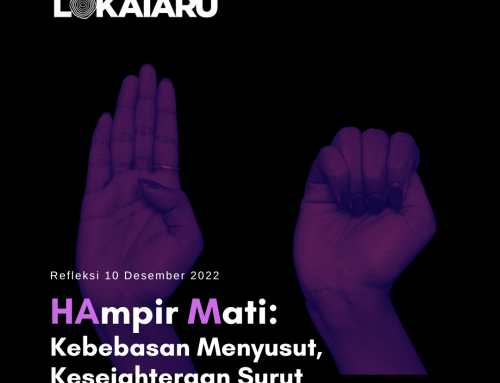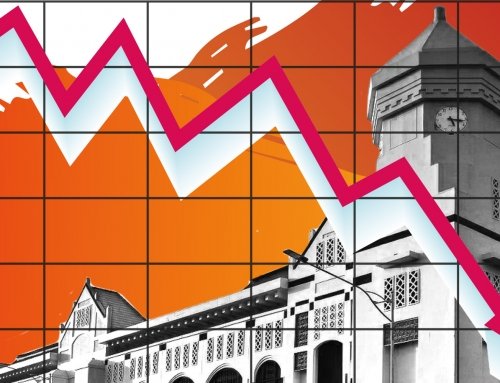Tax Briefing Series No. 4
LOKATARU FOUNDATION
TAX TRANSPARENCY
- How are the latest developments in the G20 negotiations on Tax Transparency ?
OECD Secretary General Report 2022
On 9 February 2022, the OECD Secretary-General delivered a tax report to the G20 Finance Ministers and Central Bank Governors ahead of their 17-18 February meeting under the 2022 Indonesian Presidency. The report provides an update on the ongoing activity on tax transparency. The report indicates that a new tax transparency package consisting of a new crypto-assets reporting framework and a proposed revision of the Common Reporting Standard will be released soon for public consultation. In relation to the Global Forum on transparency and exchange of information for tax purposes, there are now 163 jurisdictions members, 144 signatories of the multilateral Mutual Assistance Convention, and over 7,700 exchange relationships in place. Moreover, 120 jurisdictions have committed to automatic exchange of information (AEOI) by 2024 and progress on transparency and exchange of information has helped identify approximately €112 billion in additional revenue to date.
G20 communiqué
The communiqué issued at the conclusion of the G20 Finance Ministers and Central Bank Governors meeting on 17-18 February includes the following paragraph on tax matters:
We ask the OECD to complete the work on a reporting framework for automatic exchange of information on crypto-assets, with a view to improve tax compliance.
Crypto-Asset Reporting Framework or “CARF”
On March 22, 2022, the Organisation for Economic Co-operation and Development (OECD) released a new global tax transparency framework, which introduces the automatic exchange of tax information on transactions in Crypto-Assets in a standardised manner (“Crypto-Asset Reporting Framework” or “CARF”) and also proposed amendments as part of the first comprehensive review of the the Common Reporting Standard (CRS). The OECD issued an announcement on 2 May 2022 on the publication of responses to its 22 March 2022 invitation for public comments.
Similar to CRS, intermediaries are expected to have due diligence and reporting obligations under CARF. Reporting crypto-asset service providers (RCASP), are individuals or entities that facilitate exchange between crypto-assets or between crypto-assets and fiat currencies. Examples of CASP would include exchanges, brokers and dealers in crypto-assets, and operators of crypto-asset ATMs.
To capture the majority of the transactions in this space, there has been feedback to allow for phased implementation of the CARF rules. In relation to intermediaries, if implemented, this means that the first phase would include the intermediaries of centralised exchanges and those that are covered by Financial Action Task Force (FATF), with the rest of the RCASPs being covered in subsequent phases.
Given the broad definition of RCASPs, intermediaries involved in the chain of exchanges involving crypto-assets are advised to periodically evaluate whether they fall under the definition of RCASP.
Due diligence and reporting obligations of RCASPs under CARF
RCASPs will be required to perform due diligence on their customers who transact in crypto-assets, and to report certain information to the tax authority on an annual basis. The reported information will then be shared with the tax authority where the customer is resident.
The CARF due diligence procedures are built on existing CRS due diligence processes and existing anti-money laundering and know your customers obligations. Customers will have to certify their tax status and RCASPs will be required to confirm reasonableness of this information in light of other available information. RCASPs will also be required to monitor any changes in circumstances that may make the customer’s certification invalid.
Unlike CRS, customers are required to reconfirm the information provided once every three years and RCASP must refuse to effectuate relevant transactions until a valid self-certification is obtained.
There are four types of reportable crypto-asset transactions that RCASPs will be required to report under the CARF:
- Crypto-to-fiat currency transactions
- Crypto-to-crypto transactions
- Reportable retail payment transactions
- Other transfers
Similar to the CRS rules, RCASPs will report to the local tax authority on an annual basis in respect of reportable clients.
Tax authorities and the OECD appear to be approaching this new area with caution, imposing additional safeguards and obligations to scale up the transparency in this space. On the other hand, industry participants have consistently asked for a level-playing field with traditional financial institutions i.e., that the due diligence obligations be aligned to CRS.
Until the governments are comfortable with this new asset class, RCASPs are advised to prepare for additional systems and processes to ensure compliance with the proposed CARF rules.
Amendments to the existing CRS rules related to crypto-assets
The OECD also proposes to amend the current CRS rules to allow for effective integration of CRS and the CARF rules. These proposals include:
- Extending the scope of the CRS to cover electronic money products and central bank digital currencies
- Expanding the definition of an investment entity (e.g., funds) to include entities that invest in crypto-assets
- Expanding the definition of financial assets to include derivatives referencing crypto-assets
- New provisions to limit instances of duplicative reporting
Despite the above, duplicative reporting exists under the current proposal, especially for entities that qualify as a reporting financial institution under CRS, and as RCASP under CARF.
- what is the current position and arrangement of tax transparency by Indonesia?
The Minister of Finance Regulation No. 68 / PMK.03 / 2022 concerning Regulations on Value Added Tax and Income Tax on Crypto Asset Trading Transactions.
Through the authority of the Minister of Finance, Government of Indonesia has issued regulations to taxing crypto assets transactions. Although the legal position is still ambiguous, the Minister of Finance chose to go one step further by issuing tax regulations on crypto-asset transactions by applying value added tax (VAT) and withholding tax (WHT) starting in April 2022.
In this regulation, the Registered Trading Organizer through electronic system (Trading Platform) must collect VAT and withhold tax (WHT) from the transactions which they facilitated. Crypto- asset-mining service providers are also not exempt from the provisions to collect VAT and WHT.
Crypto-asset transactions are subject to VAT 0.11% of the value of the sale and purchase if traded by crypto assets physical traders. If traded by non-physical traders, they are subject to 0.22% of the value of the sale and purchase. The acquisition of crypto-asset value from miners is subject to VAT of 1.1%, while crypto asset mining services are still subject to 11% VAT (only to the amount of services, exclude crypto assets value).
Crypto-asset sales transactions are also subject to withholding income tax of 0.1% if carried out by crypto-asset physical traders and 0.2% if carried out by non-physical traders.
The Minister of Finance Regulation defines that physical crypto-asset traders are service companies that have been legalized and verified by the state. They are permitted to conduct crypto-assets trading activities and are obligated to report such trading activities to the designated authorities.







